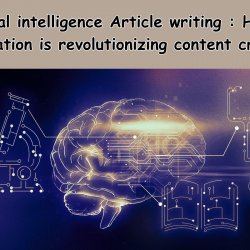Ethics vs. Bioethics : What’s the Difference?

 Introduction
Introduction
Welcome to the world of ethics and bioethics! In this section, we will explore the key concepts and principles of these two fields and how they are relevant in our rapidly advancing world. By the end, you will have a better understanding of what differentiates ethics from bioethics and how they both tie into the ever evolving topic of artificial intelligence.
To begin with, let’s define what ethics and bioethics are. Ethics refers to the branch of philosophy that deals with moral principles and values that govern human behavior. It is concerned with distinguishing right from wrong and guiding individuals towards making ethical decisions. On the other hand, bioethics is a specific subset of ethics that focuses on ethical issues arising in the field of healthcare and life sciences. It examines how moral values can guide decision making in areas such as medicine, genetics, and technology.
At first glance, you may find it difficult to differentiate between ethics and bioethics as both involve studying moral principles and values. However, the main difference lies in their scope while ethics is concerned with general human behavior, bioethics has a narrower focus on ethical issues in healthcare and life sciences.
One significant area where ethics and bioethics play a crucial role is artificial intelligence (AI). As AI continues to advance at an unprecedented pace, there are numerous ethical concerns surrounding its development and use. For example, should AI be granted legal personhood? How can we ensure that AI systems do not reinforce existing societal biases? These are just some of the questions that need to be addressed by experts in both ethics and bioethics.
Defining Ethics and Bioethics
Ethics : Ethics is a branch of philosophy that deals with moral principles, values, and concepts that guide individuals and societies in distinguishing right from wrong, good from bad, and just from unjust. It involves the study of moral principles and the application of these principles to real-life situations, helping individuals make informed and responsible decisions.
Bioethics : Bioethics on the other hand, is a specialized branch of ethics that focuses on ethical issues and dilemmas arising in the fields of healthcare, life sciences, and biotechnology. It involves the examination of moral questions and ethical considerations related to medical practice, healthcare policies, biomedical research, and the implications of advances in life sciences and technology on society.
Key aspects of bioethics include:
- Informed Consent: Bioethics emphasizes the importance of informed consent, ensuring that individuals have the necessary information to make autonomous decisions about their healthcare, participation in research studies, and medical treatments.
- Patient Autonomy: Bioethics recognizes the principle of patient autonomy, advocating for the right of patients to make decisions about their own healthcare, treatment options, and end-of-life care based on their values and preferences.
- Beneficence and Nonmaleficence: Bioethics promotes the principles of beneficence (doing good) and nonmaleficence (avoiding harm), guiding healthcare professionals to act in the best interests of patients while minimizing potential harm and risks.
- Justice and Fairness: Bioethics underscores the principles of justice and fairness, advocating for equitable access to healthcare resources, the fair distribution of healthcare services, and the elimination of disparities in healthcare delivery.
- End-of-Life Care: Bioethics addresses ethical issues related to end-of-life care, including decisions about euthanasia, physician-assisted suicide, palliative care, and the allocation of resources for terminally ill patients.
- Research Ethics: Bioethics sets ethical guidelines for biomedical research, ensuring the protection of human subjects, the responsible conduct of research studies, and the ethical use of animals in scientific research.
- Emerging Technologies: Bioethics examines the ethical implications of emerging technologies in the fields of biotechnology, genetic engineering, reproductive technologies, and stem cell research, considering the potential impact of these advancements on individuals, communities, and the environment.
Key Principles in Ethics and Bioethics
Where science and technology are advancing at a rapid pace, another important aspect to consider is bioethics. Both ethics and bioethics play a crucial role in shaping our behavior and choices, especially when it comes to areas such as artificial intelligence (AI). Let’s delve into the key principles of ethics and bioethics to better understand their significance in our lives.
Firstly, it’s essential to understand the difference between ethics and bioethics. Ethics refers to a set of moral principles that guide an individual or society’s behavior. These principles are based on values such as honesty, fairness, respect, and responsibility. On the other hand, bioethics focuses specifically on ethical issues in healthcare, medical research, and life sciences. It deals with complex moral dilemmas arising from advancements in technology and their impact on human lives.
One of the key principles in ethics is autonomy, the right for individuals to make their own decisions about their lives without interference from others. In healthcare settings, this means giving patients control over their treatment options while considering their physical, emotional, and spiritual needs.
Applications of Ethics and Bioethics in Medicine
- Informed Consent: Ensuring that patients receive comprehensive information about their medical conditions, treatment options, potential risks, and benefits, allowing them to make autonomous and informed decisions about their healthcare.
- Patient Rights and Dignity: Upholding the rights of patients to receive respectful and dignified care, protecting their privacy, confidentiality, and autonomy throughout the healthcare process.
- End-of-Life Care: Guiding ethical decision-making in end-of-life care, including discussions about advance directives, palliative care, and the withdrawal or withholding of life-sustaining treatments, while considering the patient’s values and preferences.
- Allocation of Resources: Addressing ethical considerations related to the fair and just allocation of limited healthcare resources, including organ transplants, vaccines, and medical treatments, ensuring equitable access for all individuals.
- Research Ethics: Establishing ethical guidelines for the conduct of biomedical research, including the protection of human subjects, ensuring informed consent, and promoting the responsible and transparent use of data in research studies.
- Reproductive Ethics: Addressing ethical issues related to assisted reproductive technologies, fertility treatments, genetic screening, and prenatal testing, while considering the well-being of the individuals involved and the implications for future generations.
- Genetic and Genomic Testing: Guiding the ethical use of genetic and genomic information in medical practice, including considerations related to privacy, confidentiality, genetic counseling, and the responsible communication of genetic test results.
- Emerging Technologies: Considering the ethical implications of emerging medical technologies, such as artificial intelligence in healthcare, gene editing, and personalized medicine, to ensure that these advancements are used responsibly, equitably, and in the best interests of patients.
- Public Health and Policy: Addressing ethical challenges in public health policy, including the development of guidelines for disease prevention, vaccination programs, and health interventions, while considering the broader societal impact and the principles of justice and fairness.
The Role of Artificial Intelligence in Shaping Ethics vs. Bioethics
- Ethical Decision-Making Support: AI tools can assist healthcare professionals in making complex ethical decisions by analyzing large datasets, identifying patterns, and providing evidence-based recommendations for patient care, treatment options, and end-of-life care, while considering ethical principles such as beneficence and patient autonomy.
- Data Privacy and Security: AI has implications for data privacy and security in healthcare, raising concerns about the ethical use and protection of sensitive patient data. Ensuring the responsible and secure handling of medical data is crucial to maintaining patient confidentiality and trust.
- Algorithmic Bias and Fairness: AI systems can inadvertently perpetuate biases in healthcare, affecting patient outcomes and treatment recommendations. Addressing algorithmic bias and ensuring fairness in AI-driven healthcare interventions are essential to promote equitable access to quality healthcare for all individuals.
- Enhanced Diagnostic and Treatment Capabilities: AI-powered diagnostic tools and treatment algorithms can improve the accuracy and efficiency of medical diagnoses and interventions. However, ensuring the ethical use of AI technologies in clinical decision-making and treatment planning is essential to avoid over-reliance on AI and to uphold patient safety and well-being.
- Patient-Provider Interactions: AI-enabled virtual assistants and chatbots are reshaping patient-provider interactions, offering personalized health information, appointment scheduling, and basic medical advice. Ensuring that these interactions prioritize patient privacy, informed consent, and accurate information dissemination is crucial to maintaining ethical standards in healthcare delivery.
- Research and Innovation: AI is driving innovation in biomedical research by enabling the analysis of complex biological data, accelerating drug discovery, and facilitating the development of personalized treatment strategies. Ethical considerations surrounding the use of AI in research, including data transparency, informed consent, and the responsible use of research findings, are critical to upholding the integrity of scientific inquiry and ensuring the protection of research participants’ rights.
- Governance and Regulation: The integration of AI in healthcare and biomedical research necessitates the development of robust governance frameworks and regulatory policies to address ethical challenges, protect patient rights, and ensure the responsible use of AI technologies. Effective governance and regulation are essential to mitigate potential ethical risks and foster trust in AI-driven healthcare systems.






Ingen kommentarer endnu